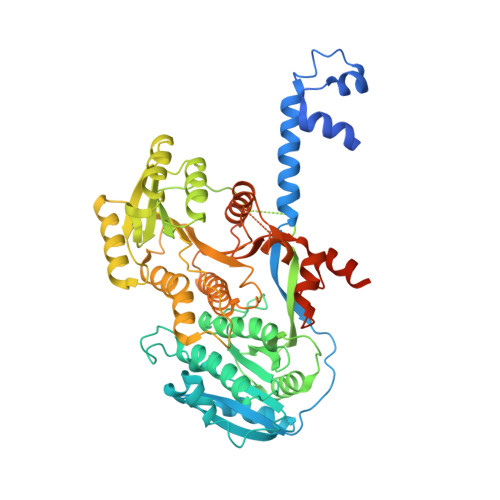Structural Studies of an A2-Type Modular Polyketide Synthase Ketoreductase Reveal Features Controlling alpha-Substituent Stereochemistry.
Zheng, J., Piasecki, S.K., Keatinge-Clay, A.T.(2013) ACS Chem Biol 8: 1964-1971
- PubMed: 23755878
- DOI: https://doi.org/10.1021/cb400161g
- Primary Citation of Related Structures:
4L4X - PubMed Abstract:
Modular polyketide synthase ketoreductases often set two stereocenters when reducing intermediates in the biosynthesis of a complex polyketide. Here we report the 2.55-Å resolution structure of an A2-type ketoreductase from the 11th module of the amphotericin polyketide synthase that sets a combination of l-α-methyl and l-β-hydroxyl stereochemistries and represents the final catalytically competent ketoreductase type to be structurally elucidated. Through structure-guided mutagenesis a double mutant of an A1-type ketoreductase was generated that functions as an A2-type ketoreductase on a diketide substrate analogue, setting an α-alkyl substituent in an l-orientation rather than in the d-orientation set by the unmutated ketoreductase. When the activity of the double mutant was examined in the context of an engineered triketide lactone synthase, the anticipated triketide lactone was not produced even though the ketoreductase-containing module still reduced the diketide substrate analogue as expected. These findings suggest that re-engineered ketoreductases may be catalytically outcompeted within engineered polyketide synthase assembly lines.
- Department of Chemistry and Biochemistry and ‡Institute for Cellular and Molecular Biology, The University of Texas at Austin , Austin, Texas 78712, United States.
Organizational Affiliation:

















